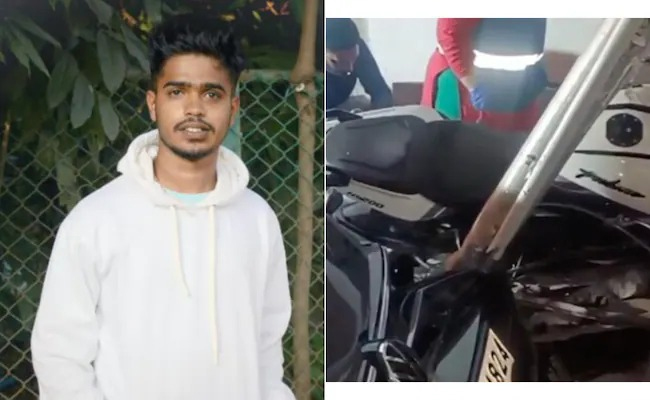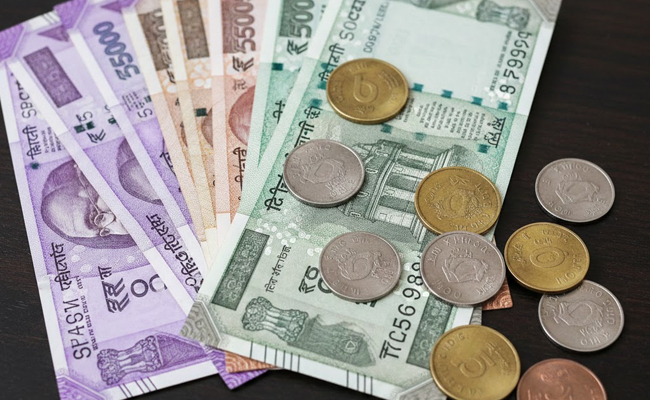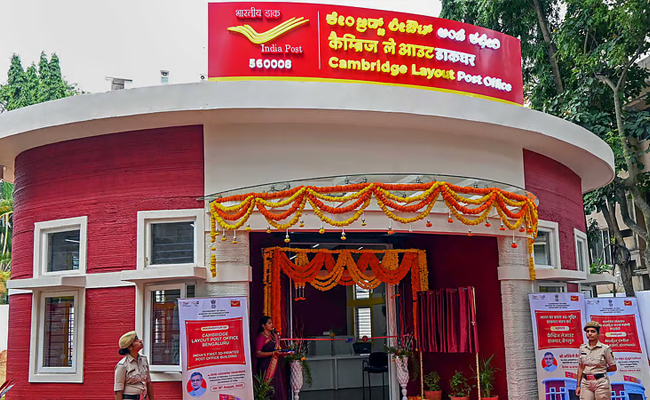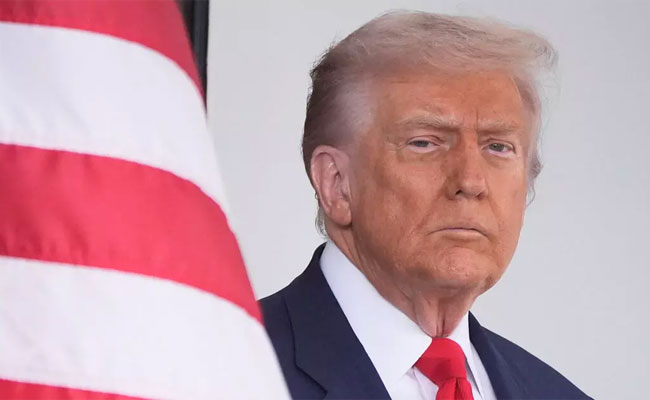Bengaluru: A 21-year-old delivery boy named Mahesh was killed in a road rage incident in Northern Bengaluru on Wednesday night after a minor collision with a car. The incident occurred when the car's occupants, identified as Aravind and Keshav, chased Mahesh's bike and deliberately rammed into it, causing fatal injuries.
According to the Vidyaranyapura police, the incident took place between 7:30 pm and 8:00 pm near GKVK when Mahesh, a resident of Nanjappa Circle, was riding his bike with friends Balaji and Nikhil. The car, bearing registration number KA 02 MU 4824, was honking at Mahesh’s bike, asking for the way to pass. When Mahesh did not yield, the car hit the bike from behind. Though the initial collision caused no major damage, Aravind, who was driving the car, began chasing Mahesh.
As Mahesh attempted to speed away, his friends Balaji and Nikhil jumped off the bike sensing danger. However, Aravind continued the pursuit and eventually rammed the bike, throwing Mahesh into the air. He struck an electric pole and a building’s compound wall. Mahesh, who was not wearing a helmet, suffered severe head injuries and died on the spot, while Balaji and Nikhil sustained minor injuries.
The Vidyaranyapura police, along with a Scene of Crime Officers (SOCO) team, visited the scene, seized both the car and the bike, and collected evidence. The police have detained Aravind, a private bank employee, and his friend Keshav for questioning. A case has been registered under Section 103 (murder) of the Bharatiya Nyaya Sanhita (BNS), 2023, and an investigation is ongoing.
Aravind and Keshav claimed they were on their way to buy milk at the time of the incident.
Let the Truth be known. If you read VB and like VB, please be a VB Supporter and Help us deliver the Truth to one and all.
Mumbai (PTI): The rupee witnessed high volatility in early trade on Wednesday, as support from easing crude oil prices was offset by uncertainty over the India-US trade deal and persistent foreign fund outflows.
Forex traders said the key driver of rupee weakness in December was continued FPI selling across both equity and debt markets, with foreign investors repeatedly selling several billion dollars’ worth of Indian assets on a daily basis in the last few months, the selling intensifying in the last two months.
ALSO READ: Rupee falls 9 paise to record low of 90.87 against US dollar in early trade
However, with Brent crude oil prices hovering near recent multi-year lows of USD 59 per barrel, the local unit was supported at lower levels.
At the interbank foreign exchange market, the rupee opened at 91.05 against the US dollar, down 12 paise from its previous close.
The domestic unit, however, witnessed a sharp recovery and appreciated 97 paise to touch an early high of 89.96 against the American currency and was trading at 90.18 against the US dollar at 09.46 hrs.
On Tuesday, the rupee tanked below 91 per dollar, hitting a low of 91.14. It finally settled at 90.93 against the American currency.
Meanwhile, the dollar index, which gauges the greenback's strength against a basket of six currencies, was trading 0.17 per cent higher at 98.31.
Brent crude, the global oil benchmark, was trading at USD 59.54 per barrel in futures trade, as record non-OPEC supply, weak China data and optimism over a Ukraine ceasefire were the main reasons for the current fall, traders said.
Meanwhile, Minister of State for Finance Pankaj Chaudhary on Tuesday informed Parliament that, "During the current financial year, the depreciation of the INR has been influenced by the increase in trade deficit and likely prospects arising from the ongoing developments in India's trade agreement with the US, amid relatively weak support from the capital account."
"The depreciation of currency is likely to enhance export competitiveness, which in turn impacts the economy positively. On the other hand, depreciation may raise the prices of imported goods. However, the overall impact of exchange rate depreciation on domestic prices depends on the extent of the pass-through of international commodity prices to the domestic market," he said.
On the domestic equity market front, the 30-share benchmark index Sensex was trading 146.09 points higher at 84,825.95, while the Nifty was up 62.05 points at 25,922.15.
Foreign Institutional Investors sold equities worth Rs 2,381.92 crore on Tuesday, according to exchange data.
According to Anil Kumar Bhansali, Head of Treasury and Executive Director, Finrex Treasury Advisors LLP, the rupee may see a slow and steady move towards 92 in the coming days, with no signs of any trade deal happening between India and the US, which has also been a cause for the equities to fall.





